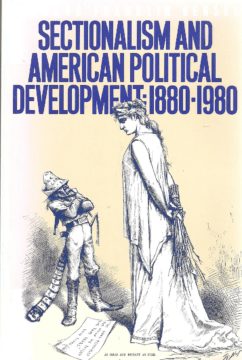 Justin Vassallo in Phenomenal World:
Justin Vassallo in Phenomenal World:
Few scholars have done more to elucidate the relationship between democracy and economic development in the United States and its corresponding regional—or “sectional”—antagonisms than Richard Franklin Bensel, the Gary S. Davis professor of government at Cornell University. Among Bensel’s published works are Sectionalism and American Political Development, 1880-1980 (1984), Yankee Leviathan: The Origins of Central State Authority in America, 1859-1877 (1990), and The Political Economy of American Industrialization, 1877-1900 (2000), all of which introduce key arguments about the course of US political economy that remain critical to understanding the evolution of the two-party system and its cross-class coalitions.
The first book measures key moments of “sectional stress” between the industrial core of the United States and the parts of the country that were traditionally agrarian and underdeveloped before the postwar decades. In his treatment of the House of Representatives as an institution which primarily represents “trade delegations,” Bensel demonstrates that a fundamental core-periphery dynamic persisted over the course of the twentieth century even as the South industrialized and the geographic poles of the Republican and Democratic parties reversed. In particular, he tracks the rise and fall of the Democratic Party’s bipolar coalition and the party’s deepening support for the most economically advanced regions of the US, anticipating today’s polarization between large, prosperous metropolitan areas and rural and peri-urban counties.
More here.
